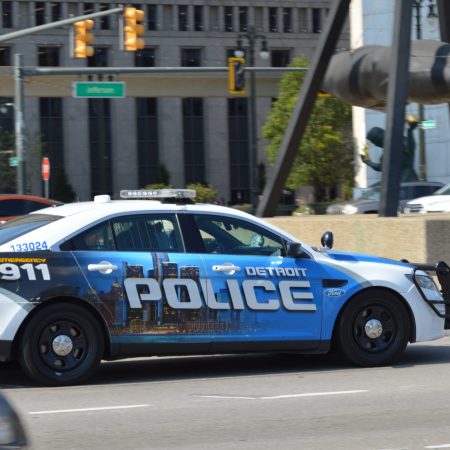Tickets to drive-through holiday light show at Eloise Asylum available through the New Year
An old building in Westland known as a haunted house around Halloween has been transformed into a Christmas attraction this year.
The iconic Eloise Asylum has an interesting history. It started as a workhouse in 1839, then developed into an asylum, sanatorium and hospital over time. A century and a half later, in 1982, the facility was closed. Now it’s used as a house of horrors during fall, but the building has become festive for the holiday season this December.
Kyle Bostick is the owner of MI Bright Lights, a drive-through holiday light show now being hosted at Eloise. Bostick says he and his wife originally started doing shows at their home in Garden City.
“In the past few years, we’ve had thousands upon thousands of cars at our house every night throughout the season,” he said. “We do Halloween, we do Christmas, we do Fourth of July, and the traffic just became unmanageable.”
At that point they knew they had to find a bigger venue, Bostick said, “and that’s when we started looking. We found this one, and here we are.”
Cars line up at an entrance tunnel to get in, where thousands of green, red and white lights illuminate the 100-foot path. Families tune into the venue’s low-power radio station and listen to holiday jingles as they roll through the show.

Elves and gingerbread people made of light steer vehicles onto Candy Cane Lane, where visitors can find characters like Rudolph and the Grinch along the way, singing and dancing to the music in the cars.
Bostick says the process of producing the show is very demanding, both creatively and practically. He says his team worked on programming the light performances throughout the year and started building the set in August. He estimates spending 40 to 100 hours working on each song they use for the show.
“Our show is different than any other show in Michigan because we are the only synchronized pixel drive through light show, which means that all of our lights are synchronized to music,” he said. “They will change colors, they will dance to the beat of the songs, and every time you come will be a different experience.”
Once the drive-through ends, everyone gets out of their cars to visit Santa Land. Children call out to Santa’s helpers walking through and pose for pictures.
“We have an interactive walk through with a full-size gingerbread house, lots of cute photo opportunities.We have an interactive Santa mailbox, where kids can mail letters to Santa. On the weekends, we have Santa here. You can get photos with Santa, give him your letter, all that type of stuff,” Bostick said.
MI Bright Lights will be open each night for the rest December and through Jan. 5. For more information, visit mibrightlights.com.

The post Tickets to drive-through holiday light show at Eloise Asylum available through the New Year appeared first on WDET 101.9 FM.


